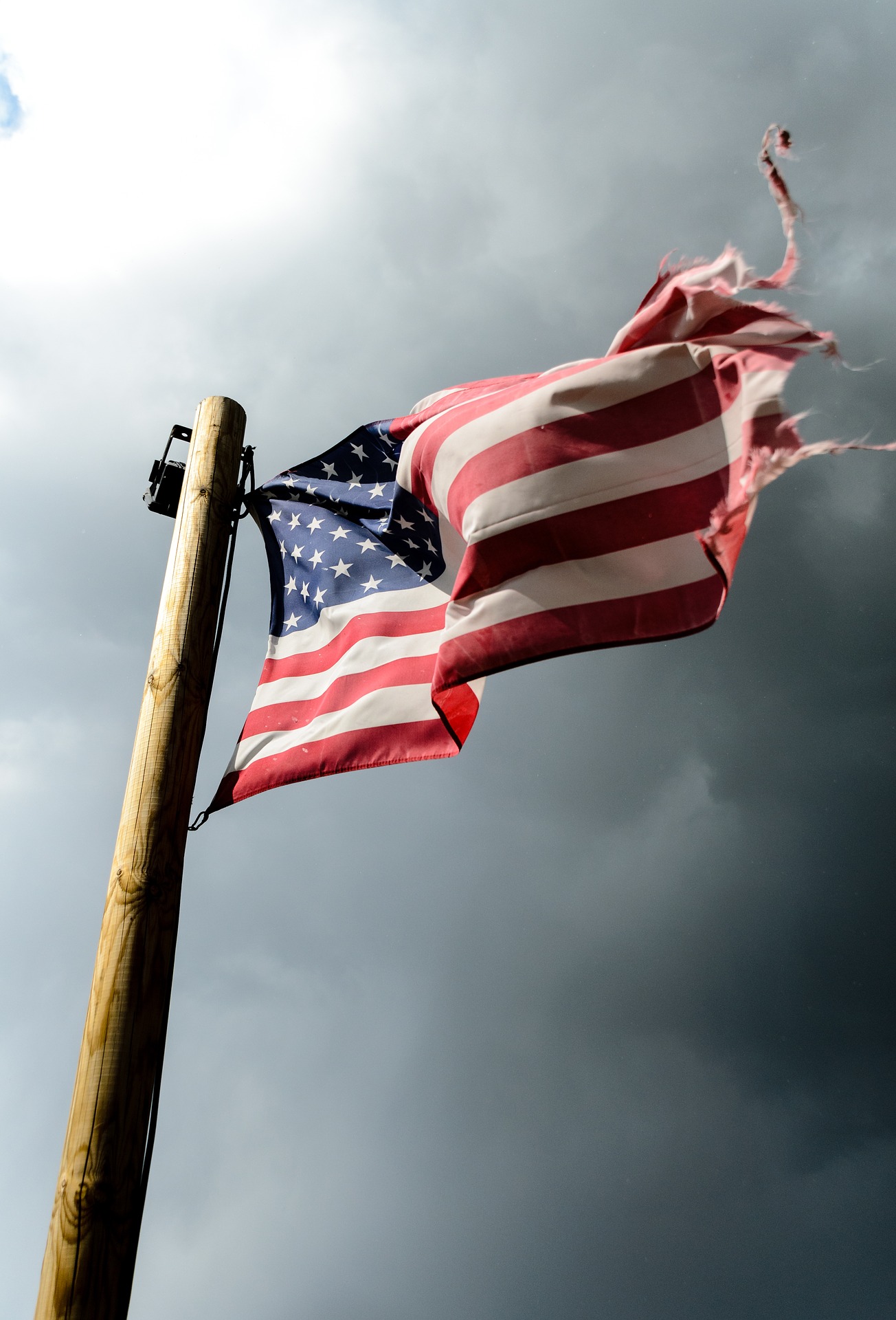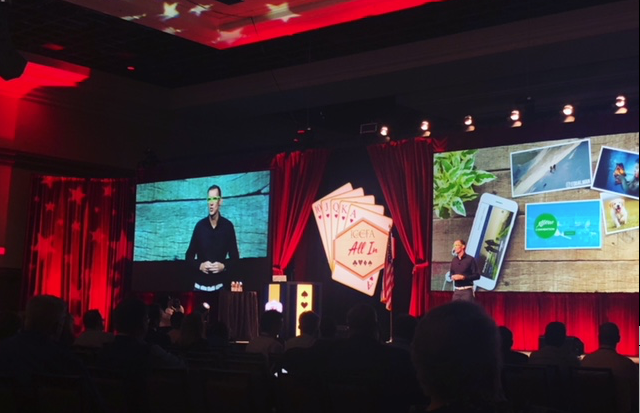Sep 24, 2018

No one wants to be the funeral home in the headlines.
We’ve all see the photos: the veteran’s funeral dishonored,
the hearse left unattended in a parking lot, the selfie taken in front of the
casket.
We’ve all read the headlines that seem to pop up all too
often. For every positive story about a funeral home, there seems to be at
least a dozen negative ones.
And we’ve all watched as the comments from the public come
pouring in. We’ve all seen how quickly people will jump to an immediate, visceral
reaction without confirming the facts anytime a headline is even remotely
related to death care.
For funeral directors, being in the spotlight is rarely a
good thing. The moment the perception becomes that your funeral home is
disrespectful, unpatriotic or negligent in anyway, there is no way to close
that Pandora’s box. Once a negative story is released, it spreads like a
stubborn weed, growing in all directions. Which is why funeral professionals
must take measured steps to prevent these stories from ever taking root.
With social media, the concept of something happening
“behind closed doors” is slowly eroding as smartphones and the Internet have exposed
just about every aspect of our lives. At the 2018 ICCFA Convention, Keynote
Speaker,
Eric Qualman, addressed
this topic, explaining how it’s not possible to opt out of the digital era
because even if you don’t post anything about yourself online, others will. In
the past, integrity was defined by one’s actions when no one is looking while
reputation was defined by one’s decisions in the public eye. Now, these two
qualities are interchangeable because every experience or interaction can be broadcast
online.
Eric Qualman speaking at the 2018 ICCFA Convention
Detailed photos can be captured from far distances and
posted on sites like Reddit for commenters to immediately share their opinions.
Stories and photos related to funeral service are likely to gain attention
faster because death is such a sensationalized topic in our culture. The sad
fact is, these days, people prefer finding something they can be outraged over
more than they prefer finding the real truth.
“Word of mouth is now on digital steroids,” Qualman
explains.
“Everyone has a digital stamp made up of your digital footprint,
which is what you share online, and your digital shadow, which is what others
post about you. Ask yourself, what kind of digital legacy do I want to leave
behind?”
Here at ASD, we understand how vital it is for funeral homes
to protect their reputations. There are so many incorrect and off-base
stereotypes that exist about the funeral profession and we know how important
it is for directors to disprove these misconceptions within their own communities.
For this reason, we’ve put together a list of some potential PR nightmares that
can befall funeral homes and ways to avoid them.
For this list, we’re looking
at the
three adjectives no director ever wants to be associated with and examine how
to ensure these words don’t ever appear in a headline with your funeral home’s
name.
Disrespectful
Perhaps the broadest term used to negatively describe
funeral directors is the word ‘disrespectful.’ This term is often used anytime
the public perceives that a funeral director fails to demonstrate sincerity
when caring for a deceased person. It is also used anytime a story is released
about a bereaved family member feeling slighted in some way by the funeral
home. There also seems to be a gray area between being outright “disrespectful”
and “not showing enough respect.” When it comes to the latter, it is almost
always a case where a funeral director did nothing morally or legally wrong but
somehow offended a person or group of people.
Every person has their own specific definition of what is
and is not respectful. In fact, this is often the biggest point of contention
between fellow funeral directors. You can see this just by taking a look at the
comment section on any popular funeral director blog. A recent example of this
is the situation that occurred when actress, Katherine Heigl, shared several
light-hearted photos she took of herself posing in front of a tombstone at a
cemetery. While some felt that it was distasteful for the actress to show any
levity in such a solemn place, others felt that the backlash was ridiculous and
that visiting a cemetery should in fact be a celebration of life. It was interesting to see funeral directors
debating this topic in online discussion groups as there were so many different
perspectives.
No matter your opinions, we can all agree that we are living
in a very sensitive time when people are much more likely to take offense to
things that may have been overlooked in the past. Death is probably the most
sensitive topic in our society, which puts funeral directors on a very delicate
tightrope.

Does ever action taken at your funeral home reflect the values you want to promote?
Consider your funeral home’s day-to-day operations. Assume
that every single action that is taken at your funeral home, or by your funeral
home staff, is being broadcast for an audience.
Is there any aspect of your business that you would not want the public
to see? Are there any concerns you have about employees not properly
representing the funeral home? Do you ever worry that any of your funeral
home’s processes or procedures could be misunderstood?
Below are a few
examples of potential actions that could cause funeral directors to be labeled
as disrespectful:
- Leaving a deceased person unattended in a public
space - Taking photos of the deceased without family’s
permission - Taking selfies in private or inappropriate
places - Handling a deceased person’s remains in an
indelicate way - Ignoring repeated phone calls or requests
- Using an improper or unsanitary method for waste
disposal - Driving hazardously while in your hearse or any
vehicle with the funeral home’s logo. - Making comments about cases you have handled in
a open forum that identifies the deceased person, the family, or personal
information. - Failing to properly communicate with family
members about what to expect once their loved one is in your care
It’s important to remember that just because something isn’t
technically illegal does not mean that the populace won’t put you on trial for
it. If the majority of people perceive that you are being disrespectful, you
will be found guilty in the eyes of the public and may have difficulty
repairing the damage done to your reputation afterwards. Even if you strongly
believe that something should be allowed, you must carefully take measure of
whether or not it is worth staking your good name. Too often, these stories are
published without giving the funeral director an opportunity to defend him or
herself, meaning that even if there is a good explanation, you may never have a
chance to make your case. When it comes
to protecting your reputation, it is always better to err on the side of
caution.
Unpatriotic
It is a sad fact that these days, patriotism has become such
a hot button topic. The endless debate of
,
“I’m a better American than you. Here’s why…”
seems to be replaying in
every corner of our country. For funeral directors, the issue of concern is not
how you define patriotism, but by how those in your local area do. In smaller,
rural communities, the pressure to conform to a more traditional approach to
funeral service is very high. While a funeral director based in a large
metropolis may have no hesitation about placing Chinese-made products in their
showroom, in other parts of the country this could be misinterpreted as being unpatriotic.

ASD has handled calls from upset community members in the past who were angry with a funeral home for forgetting to replace a tattered flag displayed outside of their building.
With escalating tension surrounding these issues, funeral
directors must be careful not to take any action that could be perceived as
unpatriotic. By and large, this mainly applies to veteran funeral services. In
every part of the country, the public will rarely forgive a funeral home that
in anyway disrespects a member of the United States military. This does not
happen often, as the vast majority of funeral directors will go above and
beyond to serve veteran families with the highest level of care. However, there
are always exceptions and stories about those few bad apples that have been
shared and re-shared so many times they have cast a dark shadow over the entire
profession. Additionally, concerns about patriotism extend to other areas of
the funeral home as well. This is especially true in more traditional markets.
Below are a few
examples of funeral home actions and inactions that could be labeled as
unpatriotic by the public
- Displaying a lack of reverence while handling a
veteran transport call, funeral service or burial - Failing to communicate with military officials
about a deceased person’s military honors - Failing to educate veteran families about the
honors and benefits they are entitled to - Promoting or working with foreign companies and
businesses - Diverting your funeral home’s phone calls to a
person or answering service that is not in the USA - Not properly displaying an American flag outside
of your funeral home building - Selling products in your funeral home showroom
that were not made in America - Declining to participate in community
celebrations of patriotic holidays, such as Memorial Day, 4
th of
July or Veterans Day
No matter your intentions, public perception is always more
powerful. It defines how you are identified by people within your neighborhood,
those whose trust your funeral home needs to earn. No funeral director wants to
imagine a person pointing at their building and saying, “that’s the funeral
home that doesn’t support our troops” or “I heard their caskets come from
IKEA.” Once an unflattering spotlight is cast over your funeral home’s
reputation, it may be very difficult to escape from under that rocket’s red
glare.
Negligence
Funeral homes that have been labeled careless or negligent
will have the biggest uphill battle to face in winning back the trust of the
public. In most cases, it simply won’t be possible. It is extremely rare for a
funeral home to be branded with such a condemning adjective and avoid jail time
or a major lawsuit. While there have
been unfortunate examples of funeral directors that have knowingly disregarded
laws and regulations, in many cases these oversights occur as a result of an
honest mistake or brief lapse in judgment.
Funeral Director, Tom
Anderson, of Anderson Funeral Home in MO, manages the Funeral Director Daily blog, which analyzes stories in the media
involving funeral homes and funeral-related businesses. In a recent article,
Anderson explained how “simply being on the local news with these types of
allegations will hurt even the most reputable mortuary immensely.” The blog
post detailed two recent examples of funeral homes that had their licenses
temporarily revoked due to incidents that occurred. One example involved a
funeral home that had casketed and buried the wrong body, and the other was
related to improper use of a cremation retort.
“There is no doubt that the stakes in funeral service have
never been higher — great services and a great reputation can earn great
respect and high profits. On the other hand, a single high profile
mistake can, potentially, be a disaster leading to bankruptcy,” Anderson
stated. “There is so much that you don’t control in funeral service, but your
good name and reputation is on the line.”
Negligence at a funeral home occurs anytime a funeral
director does not follow proper regulations when a deceased person is in their
care. This extends to the transport of the remains, refrigeration, embalming
process, cremation and/or burial of remains. By and large, most of these
incidents occur as a result of a funeral director being distracted, overwhelmed
or burned out.

Taking on more than you can handle can lead to costly mistakes and irreparable damage to your reputation as a funeral professional.
This occurs in other professions as well. A recent study found that burnout among physicians and nurses is a key driver of many medical errors. A relative of mine is registered nurse and after graduating from nursing school, she immediately began working 3
rd
shift at a busy, understaffed hospital. She was in a constant state of stress
and paranoia because of her fear that having so much on her plate at once would
cause her to make a mistake that would negatively impact the health one of her
patients. Thankfully, she was able to realize this before such a mistake ever
occurred and transitioned to working in home health care.
As a funeral director, it is important to remember that you
are only human. You must be able to recognize when the demands of the business
become too much for your shoulders to carry alone. Whether that means hiring
added support staff, delegating more of your tasks to others, or getting help
from a third-party company that can decrease your workload, the key is accepting
the need for a change before it’s too late. As the stories that circulate in
the media prove, there are major consequences to funeral professionals taking
on more work than they can manage. One moment of absent-mindedness can forever
shatter the trust you have built within your community.
Final Thoughts
You could keep yourself awake all night thinking about all
the unfortunate scenarios that could scar your reputation as a funeral
director. It is certainly not productive to agonize over situations that are
highly unlikely to occur, and that is not our intention with this blog post. However,
it is important for funeral home owners to be able to recognize and identify
their firm’s weak spots. Only you understand your funeral home’s practices
enough to know if there is a chink in the armor. Public exposure can be a
dangerous thing for funeral homes, but if you can remain in control of how you
are perceived, you have nothing at all to fear.
About The Author
Jess Farren (Fowler)
Jess Farren (Fowler) is a Public Relations Specialist and Staff Writer who has been a part of the ASD team since 2003. Jess manages ASD’s company blog and has been published in several funeral trade magazines. She has written articles on a variety of subjects including communication, business planning, technology, marketing and funeral trends. You can contact Jess directly at Jess@myASD.com



